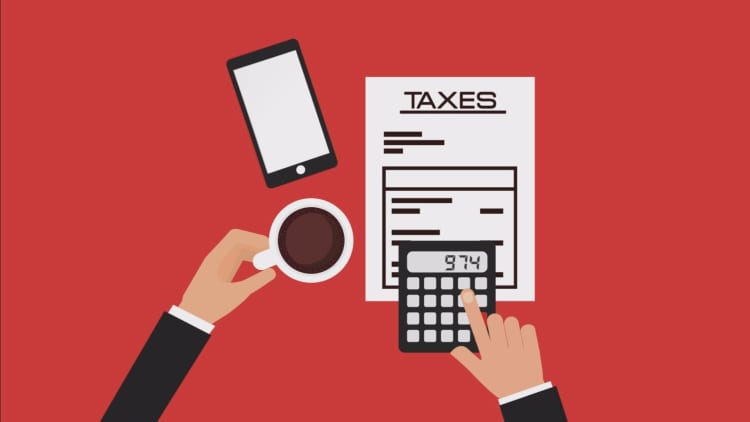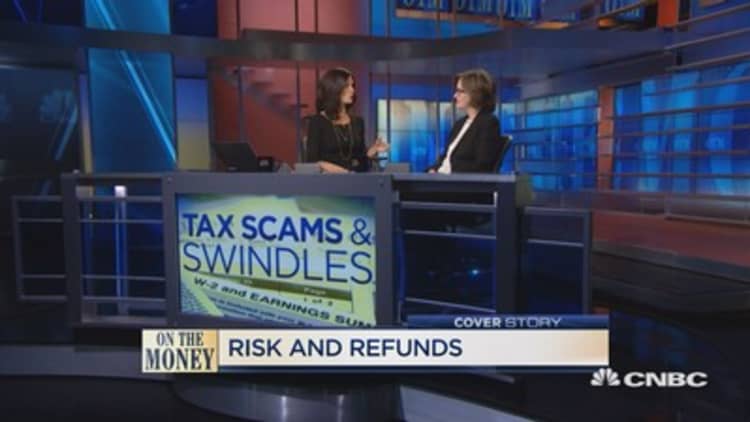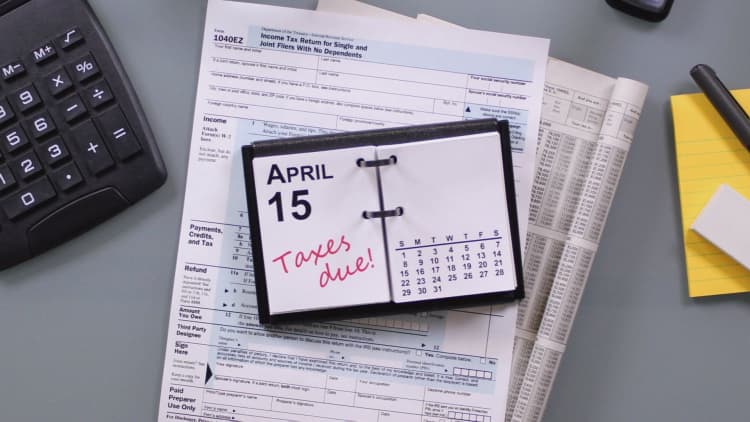
In your rush to file your taxes this year, don't forget to watch out for fraudulent tax preparers.
Crooked tax preparers will lure you with the promise of big refunds. Beware that you will be on the hook to pay more money when the Internal Revenue Service catches on to the fact that your return is botched.
These crooks are frequently busted by the Justice Department, but not before they cause real damage.
One Texas man recently pled guilty to filing false tax returns and aggravated identity theft, which had led to a $397,367 tax loss.
More from Personal Finance:
Why you shouldn't be a last-minute tax filer
10 tax changes for 2018 you need to know
Here are the highest and lowest state and local tax rates
In a separate case, a North Carolina woman was sentenced to prison after she admitted to preparing false returns to increase her clients' tax refunds. The tally for the tax loss associated with her actions came to $600,737.
Those examples are cautionary tales for taxpayers.
"There's a motivation and the incentive to not pay a lot to get your tax return done," said Melanie Lauridsen, senior manager for tax policy and advocacy for the American Institute of Certified Public Accountants. "But in the long run, you get what you pay for."
There are signs to watch out as you're selecting and working with a tax preparer.
Promises of large returns
Fraudulent tax preparers will try to lure clients by promising huge refunds.
Those scam artists, who are highlighted year after year in the IRS' "dirty dozen" list of most prominent tax scams, often target unsuspecting elderly and low-income taxpayers.
One sign that a tax preparer will inflate your return: They are getting paid based on a percentage of the refund.
"That would be an automatic stop sign for me," said Morris Armstrong, an enrolled agent and financial advisor based in Cheshire, Connecticut. "It's in their best interest to get you a larger refund whether it's real or not."
Those so-called tax professionals will often beef up your returns by attempting to cheat the system.

That could include using money paid for your commute to work or your business clothes as a deduction.
"They're not deductions" for most individuals, Armstrong said.
"I've seen people who put down 16,000 miles driving to work as an unreimbursed employee expense on the tax return, and that's just wrong," Armstrong said. "It is going to get the taxpayer in trouble upon audit."
Other traps can range from exaggerations regarding charitable contributions or medical expenses to outright lies regarding marital status or the number of children you have.
"If you have the guts and no ethics, there's so many ways you can cheat on your tax return in the short run," Armstrong said.
But in the long run you could face steep IRS penalties, even if it was the tax preparer who made the errors.
False or misleading credentials
By law, every tax preparer needs to have what is called a Preparer Tax Identification Number, or PTIN.
The IRS keeps a PTIN directory whereby you can look up a tax preparer by using their name and location.
It is important to remember that being listed in the directory is not an endorsement, said Lauridsen.
"This is just as simple as confirming that the person truly does exist and they are registered with the IRS," Lauridsen said. "There's a difference between being listed with the IRS and being qualified."
A red flag you want to watch out for: tax preparers who claim to be endorsed by the IRS.
"The IRS doesn't endorse anyone," Lauridsen said.
The PTIN directory will also tell you whether a tax professional is a certified public accountant, enrolled agent or a lawyer.
Other warning signs
Fraudulent tax preparers often work out of temporary pop-up shops.
Once tax season is done, those so-called professionals will no longer be at that location. That can be a big problem if you if you have a problem with your returns, Lauridsen said.
Other signs that crop up while working with a tax professional should tip you off that something is amiss.
Watch out for tax preparers who say your refund will be deposited in their bank account.
"That should be a red flag," Lauridsen said. "A refund should never go into their bank account."
Also watch out when you're signing the tax return. The tax preparer should sign the return.
If you're asked to sign a tax return that's incomplete, do not do it, Lauridsen said.
Remember that when you sign the documents, you are taking legal responsibility for the information on them.
Craig W. Smalley, an enrolled agent at accounting and financial services firm CWSEAPA in Orlando, Florida, said he offers all of his clients a free half-hour review of their returns, yet only about 20 percent of them take him up on the offer.
"Always review a return, because you want to know what's on it before you sign it," Smalley said.
WATCH: 5 ways people cheat on taxes



